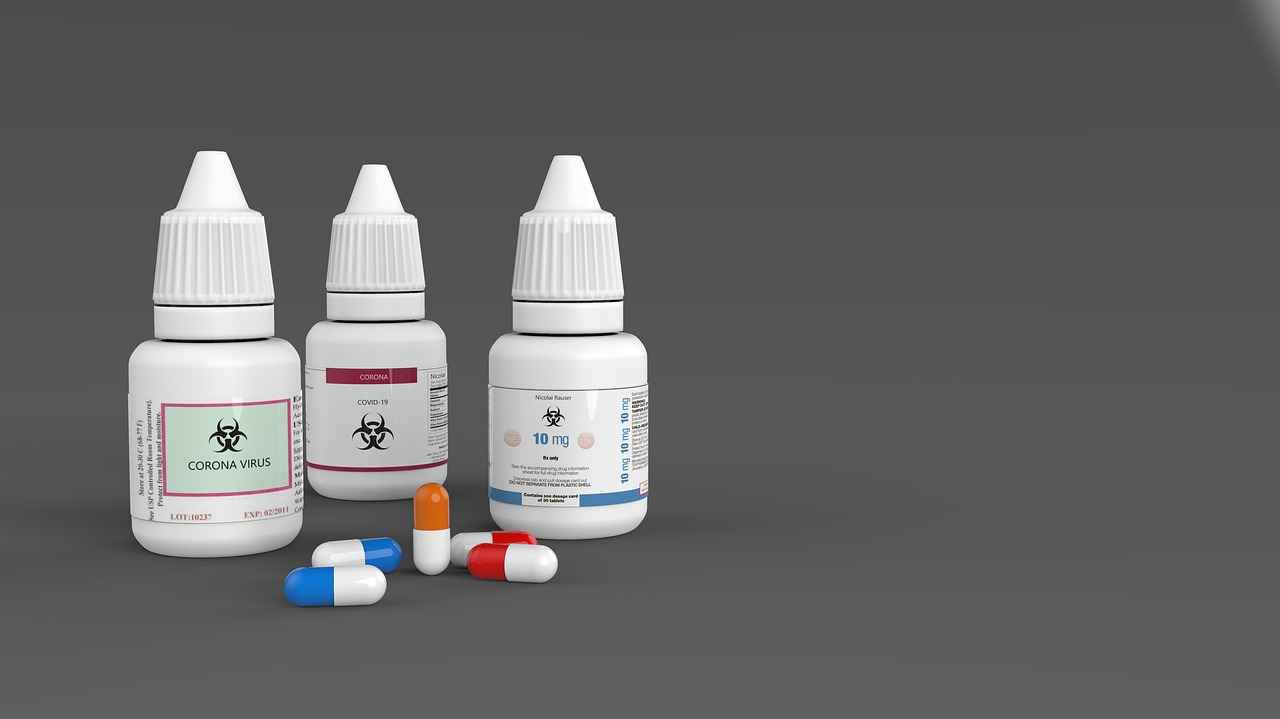This article explores the immune-boosting properties of colostrum supplements, offering valuable insights into their numerous benefits, mechanisms of action, and practical applications for enhancing overall health and wellness.
What is Colostrum?
Colostrum is the first form of milk produced by mammals immediately following childbirth. It is exceptionally rich in antibodies, nutrients, and growth factors, making it a vital component for newborns. Understanding its unique composition is essential for appreciating its significant health benefits, particularly in terms of immune support.
How Does Colostrum Support the Immune System?
Colostrum contains various components, including immunoglobulins and lactoferrin, which play critical roles in enhancing immune function. These elements work synergistically to fortify the body’s defenses against pathogens.
- Immunoglobulins: These are antibodies that help fight infections and are crucial for a robust immune response.
- Lactoferrin: This protein exhibits antimicrobial properties, aiding in the defense against harmful bacteria and viruses.
Benefits of Colostrum Supplements
Incorporating colostrum into your daily regimen can offer a range of health benefits beyond just immune support. Some of these include improved gut health, enhanced athletic performance, and better recovery after intense physical activity.
Who Can Benefit from Colostrum Supplements?
Colostrum supplements can be advantageous for a variety of populations:
- Athletes: They may experience faster recovery and enhanced immune function.
- Children: Developing immune systems can greatly benefit from the protective properties of colostrum.
- The Elderly: Older adults may find colostrum beneficial for maintaining immune resilience.
Potential Side Effects and Considerations
While colostrum is generally considered safe, some individuals may experience allergic reactions, particularly those sensitive to dairy proteins. It’s important to consult with a healthcare professional before starting any new supplement regimen.
Conclusion: Is Colostrum Right for You?
Colostrum supplements can be a valuable addition to your health routine, especially for those seeking enhanced immune support. Always consider your individual health needs and consult a healthcare provider to determine if colostrum is suitable for you.

What is Colostrum?
Colostrum is often referred to as the first milk produced by mammals immediately following childbirth. This unique substance is a nutrient-dense fluid that plays a critical role in the early development of newborns. It is packed with antibodies, essential nutrients, and growth factors that support the immune system and overall health. The composition of colostrum is vital for understanding its numerous health benefits, particularly in enhancing immune function.
Colostrum is notably rich in immunoglobulins, which are antibodies that help to protect the newborn from infections. These immunoglobulins are crucial during the first few days of life when the infant’s immune system is still developing. In addition to antibodies, colostrum contains lactoferrin, a protein that possesses antimicrobial properties and plays a significant role in iron absorption, further aiding the immune response.
Moreover, colostrum is an excellent source of growth factors that promote cellular growth and repair. These growth factors are essential not only for infants but also for adults seeking to enhance their health and recovery processes. The presence of cytokines in colostrum also contributes to its immune-boosting properties by regulating immune responses and inflammation.
As research continues to unfold, the health benefits of colostrum supplements are gaining recognition among various populations. From athletes looking to enhance recovery to children whose immune systems are still maturing, colostrum offers a wealth of potential benefits. Understanding the unique properties of colostrum can help individuals make informed decisions about its inclusion in their health regimens.
In conclusion, colostrum is much more than just the first milk; it is a powerhouse of nutrients and immune-supporting components that can significantly impact health and wellness. Its rich composition underscores its importance in both early life and as a dietary supplement for various health benefits.

How Does Colostrum Support the Immune System?
Colostrum is a remarkable substance produced by mammals shortly after giving birth, packed with essential nutrients and immune-boosting components. Its unique composition plays a pivotal role in supporting and enhancing the immune system. In this section, we will delve into the specific components of colostrum that contribute to its immune-enhancing properties and explore how they function within the body.
One of the most significant components of colostrum is immunoglobulins, which are antibodies that help the body fight infections. These immunoglobulins are classified into several types, including IgG, IgA, and IgM, each serving a specific function in the immune response. For instance, IgG is known for its ability to neutralize pathogens, while IgA is crucial for mucosal immunity, protecting the surfaces of the respiratory and gastrointestinal tracts.
Another vital element found in colostrum is lactoferrin, a multifunctional protein that exhibits strong antimicrobial properties. Lactoferrin binds to iron, making it unavailable to bacteria, thus inhibiting their growth. Furthermore, it also modulates the immune response by promoting the activity of immune cells, such as macrophages and lymphocytes, which are essential for a robust immune defense.
In addition to immunoglobulins and lactoferrin, colostrum contains a variety of growth factors and cytokines that further enhance immune function. These components support the development and differentiation of immune cells, ensuring a well-coordinated immune response. The synergistic action of these elements not only helps in preventing infections but also aids in the recovery process from illnesses.
In summary, colostrum supports the immune system through a complex interplay of immunoglobulins, lactoferrin, growth factors, and cytokines. Understanding these components can help individuals appreciate the potential benefits of colostrum supplements in enhancing overall health and immunity.
Key Components of Colostrum
Colostrum, often referred to as “liquid gold,” is a remarkable substance produced by mammals during the first days after giving birth. It is packed with vital nutrients and bioactive compounds that play a crucial role in supporting the immune system and overall health. This section delves into the essential components of colostrum and their specific contributions to immune health and well-being.
- Antibodies: Colostrum is rich in immunoglobulins, particularly IgG, IgA, and IgM. These antibodies are integral to the immune response, helping to neutralize pathogens and prevent infections. They act as the body’s first line of defense, particularly in newborns whose immune systems are still developing.
- Growth Factors: Colostrum contains various growth factors, such as insulin-like growth factor (IGF-1) and transforming growth factor (TGF). These factors promote cellular growth and repair, enhancing the body’s ability to recover from illness and injury. They also support the development of tissues and organs, making colostrum vital for both infants and adults.
- Cytokines: These small proteins are essential for cell signaling in the immune system. Colostrum is a source of several cytokines that help regulate immune responses, inflammation, and cell communication. They play a key role in orchestrating the immune response to pathogens and are crucial for maintaining homeostasis in the body.
- Lactoferrin: This multifunctional protein has antimicrobial properties and helps to bind iron, making it less available to bacteria. Lactoferrin not only supports the immune system but also promotes gut health by fostering beneficial bacteria while inhibiting harmful ones.
In summary, the —antibodies, growth factors, cytokines, and lactoferrin—work synergistically to bolster the immune system and enhance overall health. Their combined effects make colostrum a powerful supplement for individuals seeking to improve their immune health and well-being.
Immunoglobulins in Colostrum
Immunoglobulins play a critical role in the immune response, particularly in the context of colostrum, which is the first secretion produced by mammals after giving birth. This nutrient-rich fluid is packed with antibodies that serve as the body’s first line of defense against pathogens. Understanding the different types of immunoglobulins found in colostrum and their specific functions is essential for appreciating how they contribute to overall health and immune resilience.
Colostrum contains several types of immunoglobulins, primarily IgG, IgA, IgM, IgD, and IgE. Each type has unique functions:
- IgG: This is the most abundant immunoglobulin in colostrum and plays a vital role in providing long-term immunity. It helps neutralize toxins and pathogens, preventing infections.
- IgA: Found in mucosal areas, IgA is crucial for protecting mucous membranes, such as those in the gastrointestinal and respiratory tracts. It acts as a barrier against pathogens entering the body.
- IgM: This immunoglobulin is the first to respond during an infection. It is instrumental in the initial stages of the immune response, helping to identify and eliminate pathogens.
- IgD: Although its exact function is not fully understood, IgD is believed to play a role in the activation of B cells, which are essential for producing antibodies.
- IgE: Primarily associated with allergic reactions, IgE can also provide defense against parasitic infections.
The presence of these immunoglobulins in colostrum significantly enhances the immune system’s ability to combat infections, making it a valuable supplement for individuals looking to boost their health. Moreover, the synergistic effect of these antibodies in colostrum not only aids in immediate immune response but also helps in developing a robust long-term immune system.
In summary, the diverse array of immunoglobulins found in colostrum underscores its importance in immune health. By incorporating colostrum supplements into your diet, you can leverage these powerful antibodies to strengthen your body’s defenses.
Lactoferrin’s Role in Immunity
Lactoferrin is a multifaceted protein found in colostrum, the first milk produced by mammals after giving birth. This remarkable protein plays a crucial role in the immune system due to its antimicrobial properties. In this section, we delve into how lactoferrin contributes to immune defense and explore its potential therapeutic applications.
One of the primary functions of lactoferrin is its ability to bind iron, which is essential for the growth of bacteria. By sequestering iron, lactoferrin effectively inhibits bacterial growth and helps to maintain a balanced microbiome. This action not only protects against pathogenic bacteria but also supports the body’s natural defenses.
Moreover, lactoferrin exhibits anti-inflammatory properties, which can be beneficial in reducing the severity of infections and promoting faster recovery. It modulates the immune response by influencing the activity of various immune cells, including macrophages and lymphocytes. This modulation enhances the body’s ability to respond to infections and can aid in the management of autoimmune conditions.
Research has shown that lactoferrin can also enhance antiviral activity. It has been found to inhibit the replication of several viruses, including influenza and HIV, making it a promising candidate for therapeutic interventions. The potential of lactoferrin as a natural antiviral agent is an area of ongoing research and holds promise for future treatments.
In addition to its immune-boosting effects, lactoferrin is also being studied for its role in gut health. By promoting the growth of beneficial gut bacteria, it supports overall digestive health and strengthens the gut barrier, further enhancing the immune system.
In conclusion, lactoferrin is a vital component of colostrum that plays a significant role in immune defense. Its antimicrobial, anti-inflammatory, and antiviral properties make it a valuable asset in both preventing and managing infections. As research continues, the therapeutic applications of lactoferrin may expand, providing new avenues for enhancing health and wellness.
Benefits of Colostrum Supplements
Colostrum supplements provide a myriad of health benefits that extend well beyond mere immune support. As one of nature’s first foods, colostrum is packed with vital nutrients that can enhance overall health and wellness. Here, we explore the numerous advantages of incorporating colostrum into your daily regimen.
- Rich in Nutrients: Colostrum is loaded with essential vitamins, minerals, and amino acids that are crucial for maintaining optimal health. These nutrients play a key role in promoting cellular repair and growth.
- Supports Gut Health: The bioactive compounds in colostrum can help maintain a healthy gut lining, which is vital for nutrient absorption and overall digestive health. This can be particularly beneficial for those suffering from gastrointestinal issues.
- Enhances Athletic Performance: Athletes can experience improved recovery times and reduced muscle soreness through colostrum supplementation. Its growth factors can aid in muscle repair and enhance performance.
- Promotes Healthy Aging: As we age, our bodies require more support for maintaining muscle mass and immune function. Colostrum may help combat age-related decline by providing essential growth factors and immune boosters.
- Potential Anti-Inflammatory Effects: Some studies suggest that colostrum may have anti-inflammatory properties, which can help reduce chronic inflammation in the body, a common issue associated with various health conditions.
Incorporating colostrum into your daily health regimen can be a simple yet effective way to enhance your overall well-being. Its diverse benefits make it a valuable supplement for individuals of all ages, from children to the elderly. Always consult with a healthcare professional to determine the best approach for your specific health needs.

Who Can Benefit from Colostrum Supplements?
Colostrum supplements have gained attention for their potential health benefits across various demographics. While they are often associated with immune support, their advantages extend to different populations, each with unique needs. This section explores who might consider integrating colostrum into their daily diet.
- Athletes: For those engaged in intense physical activities, colostrum can be a game changer. It is known to enhance recovery times, reduce exercise-induced stress, and support overall immune function. Athletes may find that colostrum helps them maintain peak performance and reduces the likelihood of illness during training periods.
- Children: Children, particularly those with developing immune systems, can significantly benefit from colostrum. It supports growth and development, and provides essential nutrients that help bolster their immune defenses. Parents might consider colostrum for kids who are frequently ill or have trouble gaining weight.
- The Elderly: As we age, our immune systems naturally weaken. Colostrum can offer vital support for older adults by enhancing immune response and aiding in the maintenance of muscle mass. Including colostrum in their diet may help improve their overall health and quality of life.
- Individuals with Compromised Immune Systems: Those facing health challenges, such as chronic illnesses or recovering from surgery, may find colostrum beneficial. Its rich composition of immunoglobulins and growth factors can assist in healing and recovery.
In summary, colostrum supplements can serve as a valuable addition to the diet of various groups, including athletes, children, the elderly, and individuals with weakened immune systems. As always, it’s important to consult with a healthcare professional before starting any new supplement regimen to ensure it’s appropriate for individual health needs.
Colostrum for Athletes
Colostrum, the nutrient-rich fluid produced by mammals shortly after giving birth, has gained significant attention in the athletic community for its potential benefits in enhancing recovery and boosting immune function. This section delves into the specific advantages colostrum supplementation may offer to athletes engaged in intense physical training.
One of the primary benefits of colostrum is its ability to accelerate recovery after strenuous workouts. Athletes often experience muscle fatigue and micro-tears in muscle fibers, which can delay recovery. Colostrum contains growth factors, such as insulin-like growth factor 1 (IGF-1), which are known to promote muscle repair and regeneration. By incorporating colostrum into their diet, athletes may find themselves recovering more quickly, allowing them to train harder and more frequently.
In addition to its recovery benefits, colostrum plays a crucial role in enhancing immune function. Intense physical activity can temporarily suppress the immune system, making athletes more susceptible to infections. Colostrum is rich in immunoglobulins and lactoferrin, which help strengthen the immune response. These components work by neutralizing pathogens and supporting the body’s defense mechanisms, thus reducing the risk of illness during training seasons.
Moreover, colostrum supplementation has been linked to improved gastrointestinal health. Athletes often experience digestive issues due to the physical demands of their sport. The bioactive compounds in colostrum can help maintain gut integrity, ensuring that athletes can absorb nutrients effectively, which is vital for optimal performance.
In conclusion, colostrum supplementation offers a range of benefits for athletes, from enhanced recovery and immune support to improved gastrointestinal health. By integrating colostrum into their nutrition regimen, athletes may not only enhance their performance but also maintain their overall well-being. As always, it is recommended that athletes consult with a healthcare professional before starting any new supplement to ensure it aligns with their individual health needs.
Colostrum for Children
Colostrum, often referred to as “nature’s first food,” is a rich source of essential nutrients and antibodies that can significantly benefit children’s health. This nutrient-dense substance is produced by mammals shortly after giving birth and is particularly crucial for children with developing immune systems.
One of the main advantages of colostrum for children is its ability to enhance immune resilience. The immune system of a child is still maturing, making them more susceptible to infections and illnesses. Colostrum contains high levels of immunoglobulins, which are antibodies that play a vital role in defending against pathogens. These components help to fortify the immune response, providing children with a stronger defense against common infections.
Additionally, colostrum is rich in growth factors that support not only the immune system but also overall growth and development. These growth factors can aid in the development of healthy tissues and organs, which is particularly important during the early years of life when children are rapidly growing. Furthermore, colostrum contains lactoferrin, a protein that has antimicrobial properties, helping to combat harmful bacteria and viruses.
Incorporating colostrum into a child’s diet can also promote better gut health. The gut plays a critical role in the immune system, and colostrum supports the growth of beneficial gut bacteria, enhancing digestion and nutrient absorption. This can lead to improved overall health and a reduced risk of gastrointestinal issues.
It is important for parents to consult with healthcare professionals before introducing colostrum supplements into their children’s diets. While generally safe, understanding the appropriate dosage and potential allergies is essential for ensuring safety and efficacy.
In conclusion, colostrum offers a multitude of benefits for children, particularly in strengthening their immune systems and promoting healthy growth. By providing essential nutrients and antibodies, colostrum can be a valuable addition to a child’s health regimen, aiding in their development and resilience against infections.

Potential Side Effects and Considerations
While colostrum supplements are generally regarded as safe for most individuals, it is essential to be aware of potential side effects that may arise. This section aims to outline these adverse reactions and provide considerations for the safe use of colostrum supplements.
- Allergic Reactions: Some individuals may experience allergic reactions to the dairy proteins present in colostrum. Symptoms can range from mild (such as hives or itchiness) to severe (including anaphylaxis). Those with known dairy allergies or lactose intolerance should exercise caution and consult with a healthcare professional before use.
- Digestive Issues: A subset of users may report gastrointestinal discomfort, including bloating, gas, or diarrhea. These symptoms may arise due to the body’s adjustment to the introduction of colostrum, particularly in individuals with sensitive digestive systems.
- Interactions with Medications: Colostrum may interact with certain medications, particularly immunosuppressants. Individuals on such medications should consult their healthcare provider to ensure that colostrum supplementation will not interfere with their treatment.
- Quality of Supplements: The quality of colostrum supplements can vary significantly between brands. It is crucial to choose products from reputable manufacturers to ensure safety and efficacy. Look for supplements that undergo third-party testing for purity and potency.
In conclusion, while colostrum supplements offer numerous health benefits, it is vital to be aware of potential side effects and consider individual health conditions. Consulting with a healthcare professional can provide personalized guidance and ensure safe usage.
Allergic Reactions to Colostrum
Colostrum, the nutrient-rich first milk produced by mammals, is celebrated for its numerous health benefits. However, it is essential to recognize that some individuals may experience allergic reactions to the dairy proteins present in colostrum. This section provides an overview of the symptoms of such allergies and identifies who should consider avoiding colostrum supplements.
Individuals with a known dairy allergy or lactose intolerance are at a higher risk of experiencing adverse reactions when consuming colostrum. The proteins in colostrum, including casein and whey, can trigger immune responses in sensitive individuals. Common symptoms of an allergic reaction may include:
- Skin Reactions: Hives, rashes, or eczema can occur.
- Gastrointestinal Issues: Symptoms such as nausea, vomiting, and diarrhea may arise.
- Respiratory Problems: Allergic reactions can lead to difficulty breathing, wheezing, or nasal congestion.
- Anaphylaxis: In severe cases, exposure to dairy proteins may result in anaphylactic shock, a life-threatening condition requiring immediate medical attention.
It is crucial for individuals who have experienced any of these symptoms after consuming dairy products to consult with a healthcare professional before trying colostrum supplements. Additionally, those with a family history of allergies or autoimmune conditions should exercise caution and seek medical advice.
In summary, while colostrum can offer significant health benefits, it is vital to be aware of potential allergic reactions. If you suspect that you may be allergic to dairy proteins, it is best to avoid colostrum supplements and discuss alternative options with your healthcare provider.
Dosage Recommendations
Understanding the appropriate dosage of colostrum is crucial for maximizing its benefits, particularly in supporting the immune system. The right amount can help you achieve optimal results while minimizing any potential side effects. Below are some guidelines to help you determine how much colostrum to take for effective immune support:
- General Dosage: For adults, a typical dosage of colostrum ranges from 500 mg to 2000 mg per day. It is advisable to start with a lower dose and gradually increase it based on individual response.
- For Children: Children can benefit from colostrum as well, with a recommended dosage of 100 mg to 500 mg daily, depending on their age and health needs.
- For Athletes: Those engaged in intense physical activity may require higher doses, often around 2000 mg per day, to support recovery and immune function.
- Timing of Dosage: It is often recommended to take colostrum 30 minutes before meals or 1 hour after meals for optimal absorption.
It is important to consult with a healthcare professional before starting any new supplement regimen, especially for individuals with underlying health conditions or those who are pregnant or breastfeeding. Each person’s body may react differently, and a healthcare provider can provide personalized recommendations based on specific health goals and needs.
In summary, while colostrum can provide significant immune support, adhering to the recommended dosages is essential to maximize its benefits and ensure safety. Always listen to your body and adjust your intake as necessary.

Conclusion: Is Colostrum Right for You?
In today’s health-conscious world, many individuals are exploring natural supplements to enhance their wellness, and colostrum has emerged as a popular choice. Derived from the first milk produced by mammals post-birth, colostrum is packed with essential nutrients, antibodies, and growth factors that can significantly support immune function. But the question remains: Is colostrum right for you?
As we delve into the benefits of colostrum supplements, it’s essential to recognize that each person has unique health needs. For those seeking to bolster their immune system, colostrum might be a beneficial addition to their daily regimen. Its rich composition includes immunoglobulins, which play a pivotal role in immune defense, and lactoferrin, known for its antimicrobial properties. These components work synergistically to enhance the body’s natural defenses against infections.
However, before integrating colostrum into your health routine, it is crucial to consider a few factors:
- Individual Health Needs: Assess your current health status and any specific concerns you may have.
- Consult a Healthcare Professional: Always seek advice from a qualified healthcare provider to determine if colostrum supplements are suitable for you.
- Potential Allergies: Be aware of any dairy allergies, as colostrum is a dairy product and may cause reactions in sensitive individuals.
In conclusion, while colostrum supplements offer promising health benefits, particularly for immune support, it is essential to approach their use with care. By considering your individual health requirements and consulting with a healthcare professional, you can make an informed decision about whether to include colostrum in your wellness journey.














